Do you have a mold problem? If so, then you have likely already come across the terms mold removal and mold remediation. While these terms are often used interchangeably, the truth is that they are different.
Many people often assume they mean the same thing because most mold restoration companies use them interchangeably. However, if you want to get the best mold treatment or service, you need to understand the difference to demand the appropriate service from professionals.
So, what is the difference between mold removal and mold remediation? Spoiler Alert, the difference is in the processes involved in the two. Let us take an in-depth look into the differences between mold removal and remediation and how you can recognize which one of the services you need.
Before we go into the difference between removal and remediation, you must know what causes mold and the signs of a mold problem. After all, the best way to get rid of a problem is to cure its cause, not the symptoms. Mold spores can be anywhere, inside and outside your house. However, they do not pose a problem unless they settle and spread.
These spores thrive in moist areas and become colonies. Areas with moisture or even high humidity can promote mold growth. It is why mold often grows in bathrooms, windows, and buildings that have experienced a flood. Mold also grows in hidden places like behind drywall with an unknown leak.
How do you know you have a mold problem, though? While black mold stain is common and easy to spot, mold can be any color from white to green. Other than the stain, you may notice a musty odor. This smell is also an indicator of hidden mold, especially when you have had a recent flood or water leakage.

It might seem easy to ignore a little stain or mask mold odor with air freshener. However, allowing mold growth holds grave danger. How can mold growth affect you and your building?
So, you see that you need to deal with that mold problem as soon as possible. But what do you need - a mold removal or mold remediation? Let us look at these two processes, to give you an idea of what you need. Note that each mold situation is unique, and a professional mold inspection is the best way to determine the next step.
Mold Removal involves getting rid of mold spores, basically cleaning up the mold-infected area. You can carry out mold removal all by yourself. All you must do is get vinegar or a strong bleach and clean off the visible mold spores. There are also professional restoration companies that carry out mold removal.
However, you need to use the right technique if you do it yourself. You should note that it is not in every case that casual mold removal can solve your mold problem. Cases where mold removal is appropriate include:
If your mold problem does not meet all these conditions, it is best to carry out professional mold remediation.
One advantage of mold removal is that it is cheaper. You can do it yourself at your convenience. However, the disadvantages of doing a mold removal are numerous. There is a strong possibility of the mold growing back, especially if the cause is not isolated and fixed.
There might be other hidden mold sources that you never found. You could also make the situation worse or affect your health when you DIY. The truth is a mold removal is never enough on its own.
Mold Remediation is the process of restoring the mold spores' levels to normal. The process involves more than just cleaning the mold. It requires taking active steps to ensure that the mold does not grow again. Mold remediation requires the expertise and equipment of a professional.
While proper mold remediation can cost more than mold removal, in most instances, you are better off doing one. Some of such cases are:
Mold remediation by a professional restoration company would make your house smell good and look good again.
Mold remediation gets rid of most of the mold, and reduces the possibility of future mold growth. However, it is a multi-step process that requires the aid of professionals.
The proper mold remediation process differs from one company to another. The type of mold also affects the process. However, there are some general steps taken at every mold remediation.
While this process might not be followed precisely in solving your mold problem, mold experts know what to do to eliminate all kinds of mold. You do not want to wait until mold starts affecting your health. Talking to a professional mold expert is the right way to get the process started, and FDP Mold Remediation is the professional mold remediation service you need.
If you have mold in your home or business, you may be wondering if you can do mold remediation yourself. The answer is yes, you can do mold remediation yourself, but it's important to understand the process and what it entails. Mold remediation is the process of cleaning up mold in a home or business. Mold can be a serious problem, causing health problems and damage to property.
Mold remediation can be a complicated and dangerous process, so it's important to know what you're doing before you start. There are many companies that offer mold remediation services, so if you're not comfortable doing it yourself, you can always hire someone to do it for you.
Mold spores are present both indoors and outdoors, so mold growth is impossible to prevent. However, mold problems can be prevented by controlling moisture indoors. If mold is a problem in your home or office, you should clean up the mold promptly and fix the water problem if there is one. You can usually clean up mold yourself with common household cleaners. However, if the mold has already spread over a large area (greater than 10 square feet), you may need to call in a mold remediation specialist. Some mold remediation companies also offer mold testing services.
If mold is growing in your home, mold removal is not the answer. Mold removal is the process of getting rid of mold colonies as well as mold spores in the air. Even if mold colonies are removed, mold spores will remain in the air unless mold remediation is also performed. Mold remediation goes a step beyond mold removal because it seeks to address the root cause of why mold colonies were able to grow in your home in the first place. This usually involves fixing water leaks or eliminating damp areas where mold can thrive. Only after these issues have been addressed should mold removal and remediation be performed.
If you have a mold problem in your home, it is important to take action quickly. The longer mold is allowed to grow, the more damage it can cause. Mold can cause serious respiratory problems, so it is important to get rid of it as soon as possible. However, mold removal and remediation can be expensive, so you may be tempted to try a do-it-yourself solution.
There are a few things you should know before you try to remove mold yourself. First, mold removal is not as simple as just wiping it away. You need to use the proper cleaners and techniques to make sure all of the mold is removed. Second, mold remediation is even more difficult than mold removal. If you don't address the underlying issues that caused the mold growth in your home, the mold will just come back.
In our opinion, mold removal and remediation are best left to professionals. Mold remediation experts have the training and experience to safely and effectively remove mold. They also know how to address the underlying issues that caused the mold growth in your home so that the mold doesn't come back.
If you have mold in your home, the best thing to do is call a mold remediation expert.
Our experienced technicians are well-trained and happy to help you in every way you need. We have the best modern professional equipment for mold remediation, mold inspection, and mold testing. You would also love our excellent disinfecting and sanitizing services.
Mold should not have a place in your home or commercial building. Call us at 877-421-2614 today!



